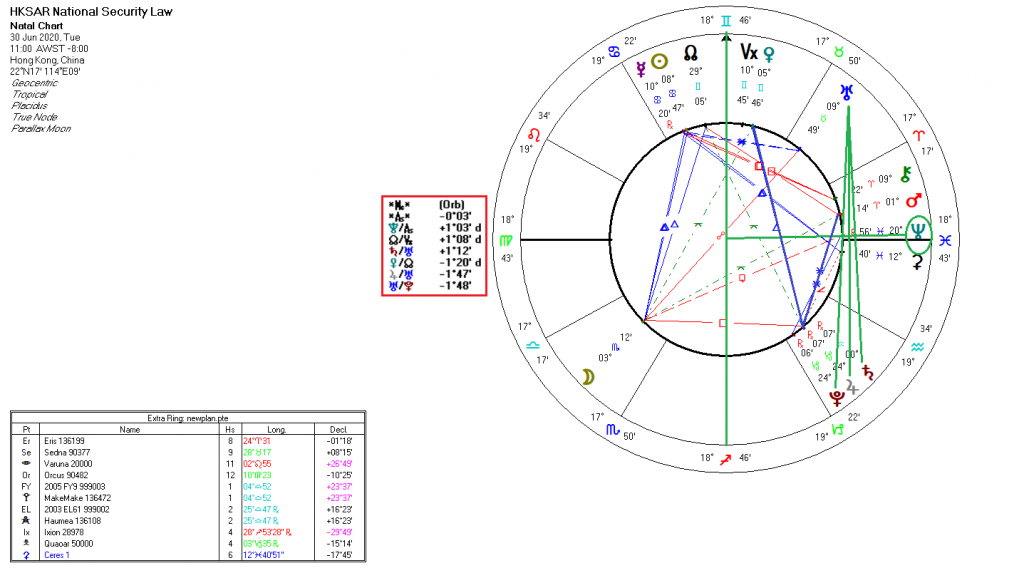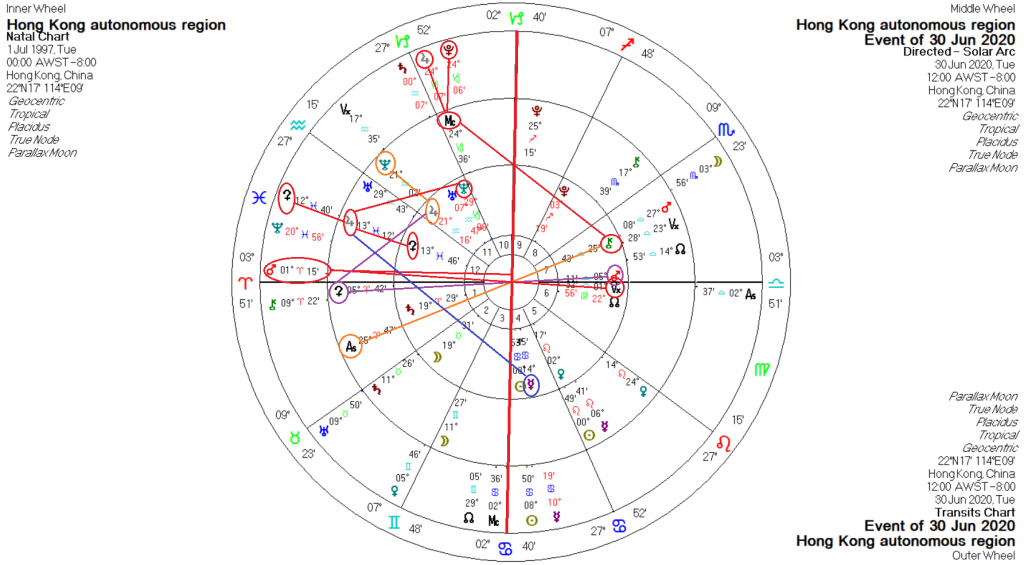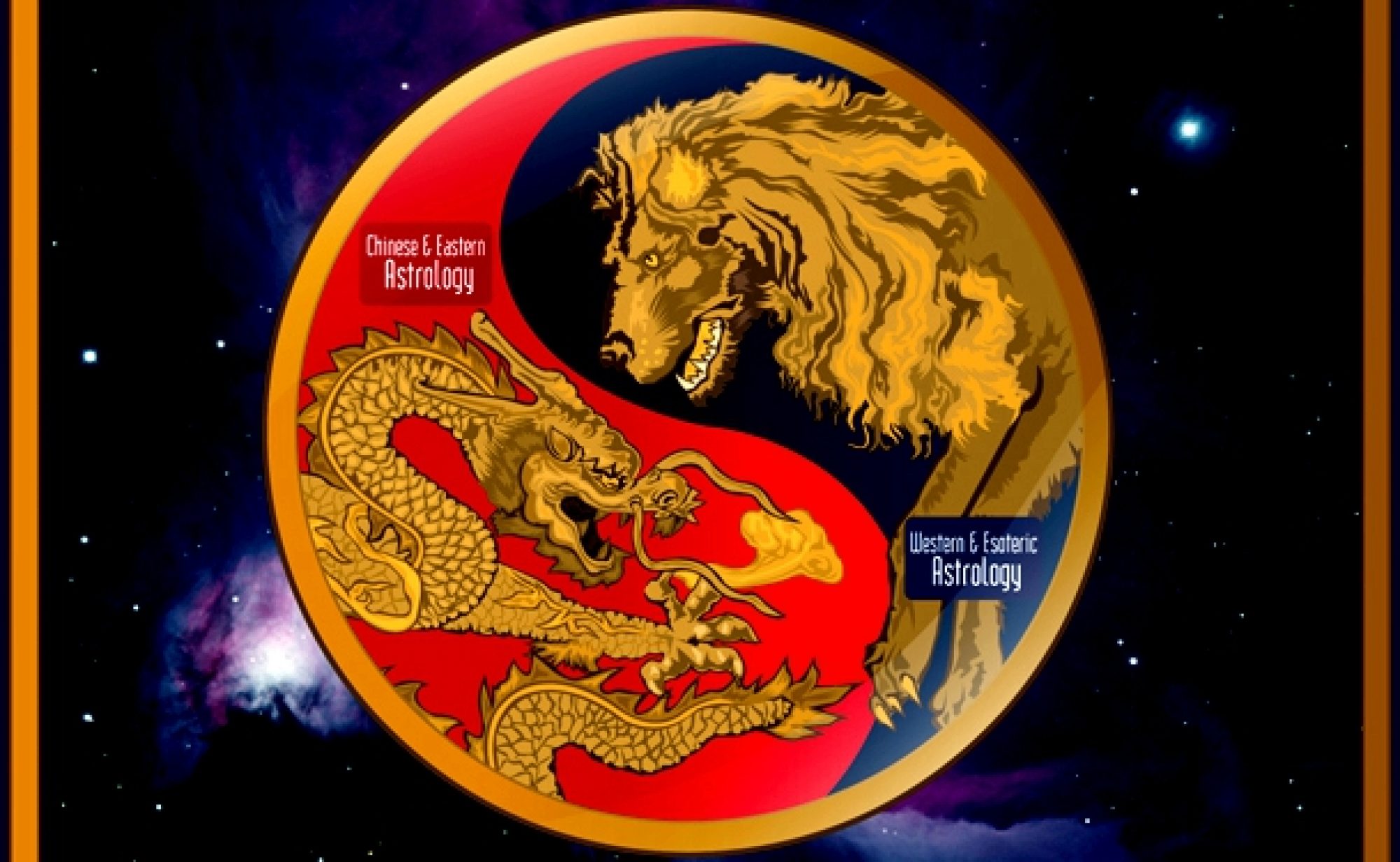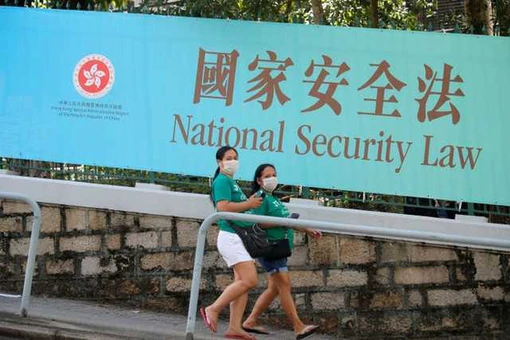On the last day of June this year the equivalent of the Chinese Senate of the Chinese Communist Party (CCP) passed the National Security Law in line with Article 23 of the de facto constitution of the Hong Kong Special Administrative Region (HKSAR). Hong Kong had failed to create any of the laws demanded by Article 23. Every time they tried to enact such a law, large-scale protests and riots erupted on the island. That was true in 2003, 2014 and 2019 and thus prevented the passage of such laws. The CCP finally had enough with the latest round, and as it turns out, most residents of Hong Kong have as well. To hear Western media reporting on the newly enacted law, it is one of the worst things that could have happened to Hong Kong. Yet, it was bound to happen at some point. But as with anything in life and in geopolitics, the situation in Hong Kong is not as it is painted in the media.
Article 23 of the 1997 constitution for Hong Kong reads as follows:
The Hong Kong Special Administrative Region shall enact laws on its own to prohibit any act of treason, secession, sedition, subversion against the Central People’s Government, or theft of state secrets, to prohibit foreign political organizations or bodies from conducting political activities in the Region, and to prohibit political organizations or bodies of the Region from establishing ties with foreign political organizations or bodies.
That the HKSAR didn’t enact such laws is due to the political climate there, which still has British and American interests strongly entrenched. That no longer matters to the CCP. When the restrictions from COVID-19 began to lift in Hong Kong and protests began to uptick again, the CCP saw its time to act. Hong Kong is Chinese territory and has been for millennia, save for the 150 years or so of British domination and China cannot permit any secessionist tendencies to flourish there. The century of humiliation still plays heavily in the consciousness of China’s elites.
People in the West generally do not know much about the new law. The law will affect only a handful of people – the main agitators of unrest – but for most people, life will be as normal. In addition, it will be the Hong Kong authorities who will enforce it, not the mainland, thus reinforcing the ‘one country, two systems’ relations between the mainland and Hong Kong . It went into force at 11:00 am local time on the 30th of June. According to Andrew Leung Kwan-yuen, president of the Legislative Council (LegCo) of Hong Kong:
“We need to explain that Hong Kong is actually a very open city,” he said. “But being open doesn’t mean the tolerance of anybody to use Hong Kong to subvert our country.” The law fully protects Hong Kong’s freedom and judicial independence, the LegCo president said, expressing his confidence that the city will have a better future.
The chart for the enactment of the law is below (bigger):

In many Asian countries, historically, little was done without first consulting an astrologer. Without knowing, that would appear to be the case here, though the Chinese do not use Western types of astrology. Security in a horoscope is ruled by Jupiter. In this case Jupiter is conjunct Pluto and is sextile to Neptune, the latter ruling the 7th house (law) and conjunct the 7th house cusp in the 7th house. The Neptune rulership of the 7th house shows the uncertainty and plasticity of the law.
Jupiter also co-rules the 7th house by the old rulership. We already see, then, that the law has fulfilled an ideal and will powerfully express it, the ideal represented in Art. 23 of the HK constitution.
The law will serve to stabilize Hong Kong, shown by the Saturn trine to Venus and sextile to Mars. Jupiter, Saturn and Pluto are all in the 5th house. In a national figure that house represents the morality of the state, income from real estate, stock markets, public happiness or sorrow and youth, to name a few things. It also represents the upper legislative body (senate) in a nation.
The Saturn trine to Venus affects HK finances (2nd house), stabilizing them, along with legislation and foreign affairs (9th house), setting those in order, too. The sextile to Mars is a wealth aspect, as well as giving direction to the energies of a nation and tempering any of the more extreme Martian energies, like riots. Mars rules the 8th house in the law chart, governing foreign banking interests and insurances. It also co-rules the 3rd house by the old rulerships – commerce, the media, social media and the like. The tech companies will come under more control with this law.
The Sun in the enactment chart is in the 10th house (sitting government), empowering the HKSAR authorities to enforce the law, conjunct Mercury and trine the Moon, giving further emphasis that the law will have a positive effect. Moon trine Sun is a ‘luck aspect’, generally removing worries and adding a bit of good fortune. Why, then, has the CCP seen fit to enact this law now when the Hong Kong authorities have failed to do so?
Several recent events have sealed the fate of the foreign interference in Hong Kong and have brought more Chinese control over the city, all happening since 2010:
- Obama’s ‘Pivot to Asia’, which was aimed at encircling China militarily
- The Hong Kong Human Rights and Democracy Act passed last year by the U.S. Congress
- Sanctions against Chinese companies, especially Huawei, along with a total blockade of 5G chip sales to that company
- The Trump administration’s National Defense Strategy, along with the recent Republican manifesto, painting China as Enemy #1.
- A radical shift in Marine Corp deployment, designed to block China’s access to the sea.
- Recent Congressional moves to place sanctions on Chinese officials for alleged abuses in China’s Xinjiang province.
- The Trump administration blaming China for the COVID-19 crisis, deflecting from its own mishandling and an economic policy that together have spelled disaster for the US.
- The ongoing trade war with the US
We covered the factor of foreign interference in Hong Kong in a post from last year, so we will not cover old ground here. Washington seems to think that it can somehow win a cold war with China. This comes at a time when the US is hard-pressed to manage its own internal affairs and when China and most of Asia are back at work and with rising GDP. Washington may be decoupling from China, but much of Asia is gradually actively already decoupling from the US.
Just what will the new National Security Law mean for Hong Kong? The effects have been almost immediate. There has been an uptick in arrests. Student organizations behind the protests have been defunded, as well as media organizations and anti-government unions. That funding came in large part through the American NGO, the NED.
Protesters on police wanted lists are fleeing the island to Taiwan and the UK, the latter having offered citizenship to people of Hong Kong who were born there under British rule. Australia is also eyeing offering sanctuary to fleeing Hong Kongers. That will turn out to be a mistake for the UK and Australia in the long term, hurting their trade relations with China.
Joshua Wong, the darling of the US media during the protests, has stepped down from the pro-democracy group Demosisto and the latter has disbanded, just hours after the law was introduced. The protests are nothing like they were in the past 12 months and will eventually all but die out.
The US has lost its destabilizing influence in Hong Kong, as have the British. And that may have hurt China in the past, due to Hong Kong having been the gateway to finance and investment in the mainland. But that is no longer the case. Hong Kong has been replaced as the major economic center in China by Beijing, Shanghai and Guangzhou. Losing Hong Kong’s business would not be a major loss to China now. It would be a setback, yes, but it would hurt the residents of Hong Kong more than the mainland.
Many residents of Hong Kong have welcomed the new law, especially business owners, from small family shops and restaurants to large industrial concerns. Businesses have fallen in line behind it, preferring stability over ideology. And that goes precisely against the reasons why the Beltway and London were trying to destabilize Hong Kong. They wanted businesses to decouple from the mainland, to keep Beijing under the western financial thumb.
Support for the protesters had been declining recently, seeing the harm they were bringing to the city, as enactment of the security law loomed. China has poured money into Hong Kong in recent weeks, allaying fears that a clampdown on protests would hurt the island’s business atmosphere. From a previous link;
“The business community is a cheerleader,” said Fraser Howie, an author and former banker who writes about China’s financial system. “They have compartmentalized that, somehow, ‘I do business, not politics.’”
The Hong Kong stock market initially had a sharp fall when the law was introduced, but it has since rebounded and continues to rise. Given all this, then, do we see a draconian clampdown in Hong Kong or will Hong Kong go on to prosper, perhaps to even greater heights? A little astrology gives us the picture. The HKSAR chart with transits and directions is below (bigger):

There is quite an interesting mix of factors in the chart. We note first the transit of Mars square the Meridian axis, showing the initial conflict the act introduced. Just after the law came into effect a protester on a motorcycle ploughed into a group of police, injuring several policemen. The man has been remanded to trial without bail. He was the first person to be arrested under the new law.
When we begin to look a little deeper, though, some interesting features emerge, starting with the directed Ascendant opposite the HK Chiron, highlighting an old wound. That ‘old wound’ can be seen in at least a couple of ways. It can represent the taking of HK from China at the point of a gun in the 19th century, or it can represent the handover back to China in 1997. It depends on a person’s perspective. There has been hurt on both sides of that coin. But the fact that the progressed Descendant is now on the HK Chiron, it shows the legal framework now in place to deal with the problem.
In addition to the Chiron considerations, we see the directed MC square to Chiron and with transiting Jupiter and Pluto conjunct the directed MC. That shows the money pouring into HK and the support of the CCP and business for the law. For all the shouting over human rights on the island by Western powers, there is simply no indication from the HK chart that the new law will be draconian. Quite the opposite is showing, in fact.
Repression and draconian measures are shown by Saturn in any chart. There are no onerous directions by Saturn to any point or midpoint in the chart. There is a transit of Saturn opposite the HK Venus, but that same transit also sextiles the Horizon axis, showing a stabilizing influence. That will come back around at the end of this year.
Contrary to Saturn, we see a direction of Jupiter to the HK Ceres, showing a fortunate turning point in the island’s history. At the same time that direction also semisquares the HK Neptune, which also trines the HK Descendant, all of which is bolstering business confidence. And then there is a direction of Ceres opposite the HK Mars, marking a turning point in the violence and restiveness on the island. And at the time the law was enacted, transiting Ceres was conjunct the Jupiter direction to the HK Ceres. Ceres also represents bread and nurturing, so overall this looks like a positive turn of events for Hong Kong, instead of the dire draconian predictions for the island.
Finally, at the end of this year, the directed Sun will enter within orb of the HK Venus, with Saturn transiting trine the HK Descendant. At the same time the Great Conjunction of Jupiter/Saturn in Aquarius will take place on the HK Neptune, opposite the HK Venus and sextile the HK Ascendant/trine the HK Descendant. What all this means is that the future for Hong Kong is looking brighter, more secure and more prosperous, to spite the doomsayers.
Many Western readers will not like to hear that life in Hong Kong will be better with the new security law, nor that Hong Kong will prosper under it. However, the point of the law is not to suppress rights and protests. Protests take place on the mainland often. The precise intent of the law is to prevent a color revolution there and subsequent secession from the mainland. That is simply not in the cards now. But the rhetoric out of the Western media will be relentless and do its worst to paint the life of the Hong Kongers now as anything but happy.
The Western media paints the new law as draconian and ambiguous. This is predictable, as the countries who support and those who oppose the new law follow a familiar pattern. There were some interesting abstentions, though – Greece, Spain and Italy – all nations who are eyeing or have signed on to China’s Belt and Road Initiative. Many foreign expats in Hong Kong support the new law.
Mike Pompeo has lashed out at the CCP for enacting the law, calling it “an affront to all nations”. That sort of hyperbole is par for the course for the Trump administration regarding China. But it is also hypocritical. Compared to security laws in other nations – like the US, Singapore, Australia, Germany and Taiwan – the law is very similar to those in the nations mentioned.
The Trump administration is now slapping tariffs on Hong Kong, as well as cancelling weapons sales to the island (why that was allowed by the CCP is a mystery), at the same time cancelling Hong Kong’s special trading status, saying that Hong is ‘no longer autonomous enough to warrant it’.
Given the reaction of the US to the new law and its loss of influence there, Hong Kong now faces a dual risk that must be addressed decisively and quickly, and these relate to the peg of the Hong Kong dollar to the US dollar, and that the island faces a structural fiscal deficit perhaps sooner rather than later due to insecurities regarding the US decoupling from Hong Kong and the COVID-19 pandemic. There would appear to be only one way forward for Hong Kong now, and that is to more fully integrate its financial interests with the mainland. That is shown in the astrology, too.
The security law is one that has been long overdue, as in 23 years too late from the foundation of the HKSAR. The new law brings it in line with the security laws in most other nations. The scaremongering from Western commentators and politicians about the plight of Hong Kong is unfounded once one steps back and analyses what is really taking place. The law will represent no noticeable change for the majority of the residents of Hong Kong as far as daily life goes, except that business will pick up.
If we look at China’s rise in the past 40 years and realize that Hong Kong has been hedging its bets in more fully coupling with the mainland based on the sentiments of a vocal and belligerent minority, coupled with fears inculcated though years of Western propaganda, then a clearer perspective for Hong Kong’s future comes into view. The special status was supposed to end by the middle of this century anyway. Such a change was bound to come at some point. The CCP was never going to let Hong Kong return to the West.
It should be clear to the protesters in Hong Kong now that the US does not have their best interests in mind, given the increase in tariffs and withdrawal of support, as in cancelling the favoured trading status. They were being used as pawns in a game of great power competition and now that their usefulness is in question they are being abandoned. This is Trump’s way of saying, “Act now and produce the result or face your fate.” He doesn’t like losing and has no use for ‘losers’.
Life will go on in Hong Kong. The protests will eventually die out. But there will be a major difference: No longer will the West be able to effectively interfere in the affairs of the HKSAR. China has no further reservations about securing its borders. And given the recent behaviour of the US toward the mainland, it hardly comes as a surprise that the Chinese will play a tougher hand with Washington into the future than has hitherto been the case. Washington and London just lost Hong Kong.
The East is gradually decoupling from the US and is rising. The US has been largely culpable in that, with its increasing belligerence toward China. The West can either join in or face increasing isolation. Southern Europe and even Germany are seeing the writing on the wall. And truth be known, little as we may realize it, the CCP has just saved Hong Kong from a future that the West is increasingly facing – austerity, a widening gap between the wealthy and the populace and life under Washington’s thumb.
Secession from China would have relegated Hong Kong to the status it had under British rule before Nixon went to China – a backwater colony, decoupled from the mainland and dependent once again on the West.
We wish the people of Hong Kong well, with peace and prosperity into the future.
Featured pic from The Diplomat

